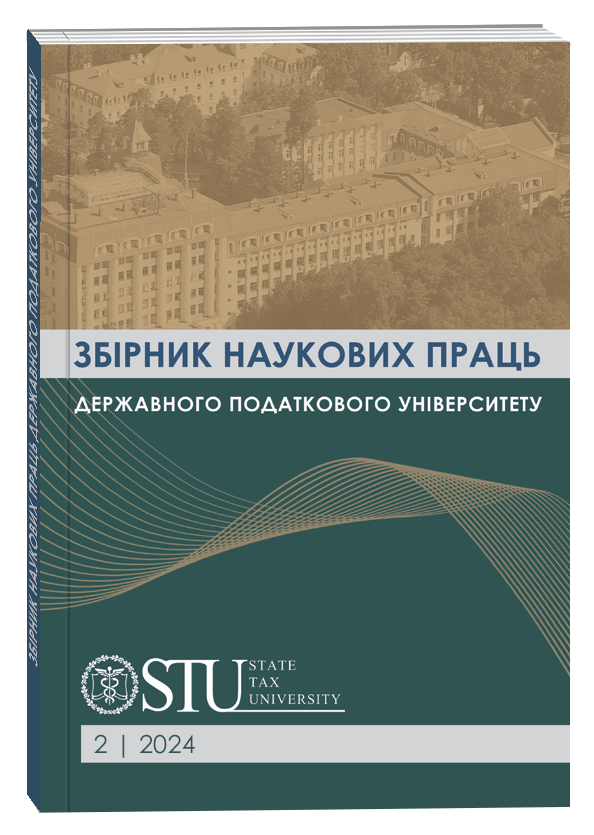BUDGETARY AND TAX INSTRUMENTS UNDER MARTIAL LAW: UKRAINIAN EXPERIENCE AND INTERNATIONAL PRACTICE
DOI:
https://doi.org/10.32782/2617-5940.2.2024.5Keywords:
fiscal policy, fiscal instruments, economic recovery, international experience, tax incentivesAbstract
The purpose of the article is to analyse the effectiveness of the use of budgetary and tax instruments in Ukraine under martial law and to develop recommendations for their optimisation, taking into account international experience. The research methodology includes an analysis of the amendments made to the Tax Code of Ukraine and recommendations of the Organisation for Economic Cooperation and Development. The study also draws on the experience of post-war reforms in such countries as Germany, Japan, the United States of America, and the experience of the Balkans. The key findings examine the priority measures in the budgetary and taxation sphere that have been applied in Ukraine after the introduction of martial law in Ukraine, as well as their impact on the formation of the revenue side of the state budget of Ukraine, and identifies three stages in amending the Tax Code in 2022-2024. The study also identifies the tax instruments that have contributed most to the economic recovery of countries that have been involved in military operations. The most effective such instruments include tax benefits for capital investments, accelerated depreciation, tax incentives for savings, and other measures aimed at strengthening economic resilience. The practical significance lies in the possibility of adapting these strategies to address the urgent needs of the Ukrainian economy during and after the conflict. The implementation of these measures is intended to facilitate Ukraine's economic recovery, attract capital investment, restore critical infrastructure, and integrate with the European tax system. The results of the study underline the importance of developing an adapted tax policy that will not only meet the unique current challenges faced by Ukraine, but will also contribute to building a mature and sustainable fiscal system that will be understandable and attractive to foreign and domestic investors and international organisations. This, in turn, will help to create favourable conditions for economic growth and development, which is critical for the country's future.
References
Bank, Steven A., Stark, Kirk J. War and Taxes. URL: http://surl.li/ysqgjr (дата звернення: 11.10.2024).
Foreign Tax Policies and Economic Growth. A conference report of the National Bureau of economic research and the Brookings Institution. URL: http://www.nber.org/books/unkn66-1 (дата звернення: 11.10.2024).
Gligorov V., Kaldor M. and Tsoukalis L. Balkan Reconstruction and European Integration. URL: http://surl.li/ndpokx (дата звернення: 11.10.2024).
Masaaki Homma. Tax Reform in Japan. URL: https://core.ac.uk/download/pdf/6870882.pdf (дата звернення: 11.10.2024).
OECD Economic Outlook, Interim Report March 2022. Economic and Social Impacts and Policy Implications of the War in Ukraine. URL: http://surl.li/jqkxzw (дата звернення: 11.10.2024).
Toder Eric. What Tax Experts Can Contribute: Lessons from World War II. URL: http://surl.li/akimyv (дата звернення: 11.10.2024).



